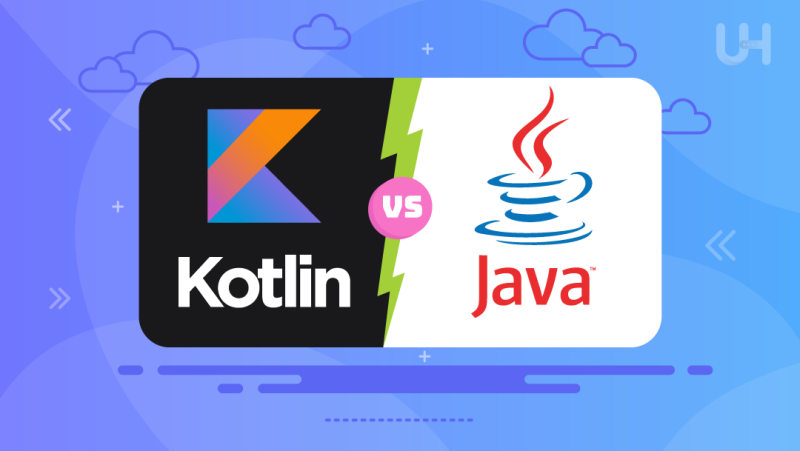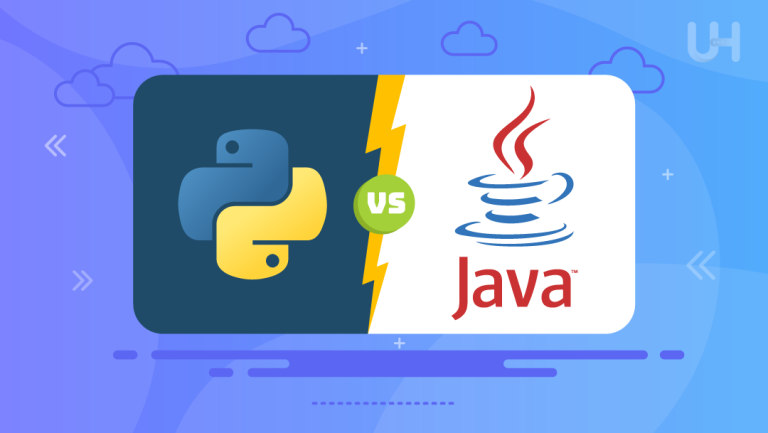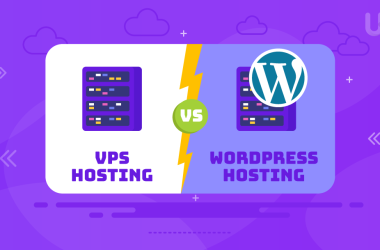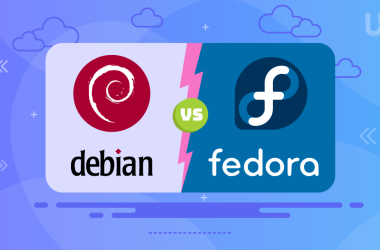The two most famous languages used in Android development are Kotlin and Java. If Java has been present for a couple of decades and is perceived as a classic, then Kotlin has an up-to-date perception, full of power, with several special features that make up for those deficiencies in Java. It becomes very important for developers to know the differences between Kotlin vs Java to make appropriate decisions concerning their projects.
In this article, we will learn about the main differences between Kotlin vs Java. We would contrast syntax, performance, and industrial adoption so that one can choose with full knowledge of what’s happening.
Brief History and Evolution
Sun Microsystems presented Java in 1995, quickly gaining immense popularity; it became one of the leaders among other programming languages. This platform independence was achieved through the JVM, making Java a favorite language for building and managing small business websites and enterprise apps. Since 1995, Java has experienced robust growth with myriad updates, rendering it a well-adapted language for the software development ecosystem.
On the other hand, Kotlin was developed by JetBrains and announced as an official release in 2011. Kotlin fully compromises with Java and has several new features that enhance code safety and conciseness. In 2017, Google announced its full support for Kotlin on Android, which constituted a major milestone in its development.
Syntax and Code Readability
Kotlin is famous for its brevity and expressiveness in syntax. Compared to Java, which provides the same functionality, you write less code using Kotlin. For example, type inference in Kotlin helps write streamlined syntax to cut down on boilerplate code, making the code easy to read and maintain. This reduces errors and enhances development on fast servers.
Java is much more powerful and sometimes verbose than several other languages that help achieve similar intended results; however, verbose code increases its complexity, which worsens readability and maintainability, especially in larger projects. Java syntax is clear and coherent, remaining user-friendly for developers at any level of experience.
Null Safety and Error Handling
Kotlin solves another of the most common problems in Java development, null pointer exceptions, by adding built-in null safety. By default, different variables in Kotlin are non-nullable, and as such, they cannot hold a null value until they have been explicitly declared as nullable.
Java, however, is not null-safe by default, and a developer should explicitly check for a null value to prevent a possible null pointer exception. If someone needs to check for null, this leads to more complicated error handling and probable bugs, making Java less secure for data privacy.
Interoperability Between Kotlin vs Java
The prime quality of Kotlin is that it’s fully interoperable with Java. Both languages come in handy in the same project, and developers can leverage this to gradually migrate or add Kotlin to existing Java codebases without requiring a full rewrite. This becomes very attractive to many teams that want to refresh their projects with modern features for lead nurturing while retaining their legacy Java code.
As the older language, Java naturally works with its ecosystem and does not natively support Kotlin’s features. On the other hand, Kotlin is designed in a way that lets it compile into Java bytecode, so all languages work together without any kind of compatibility issues.
Get Reliable And High-Performance Hosting For Java
Whether you’re developing in Java or Kotlin, UltaHost offers the perfect environment to run your applications seamlessly. Boost your project’s potential with our powerful and secure hosting solutions.
Performance and Compilation Time
Kotlin can interoperate with Java because it compiles almost the same Java bytecode; therefore, the runtime performance for both languages is practically the same. However, additional features of Kotlin, such as a more sophisticated type system and extension functions, may sometimes cause a slight overhead.
Compilation time is faster in Java because it implements a simpler compilation process. The additional syntax checks and features of Kotlin can make compile times longer in larger projects, though continuous improvements in tooling for Kotlin have closed the gap.
Tooling and Development Environment
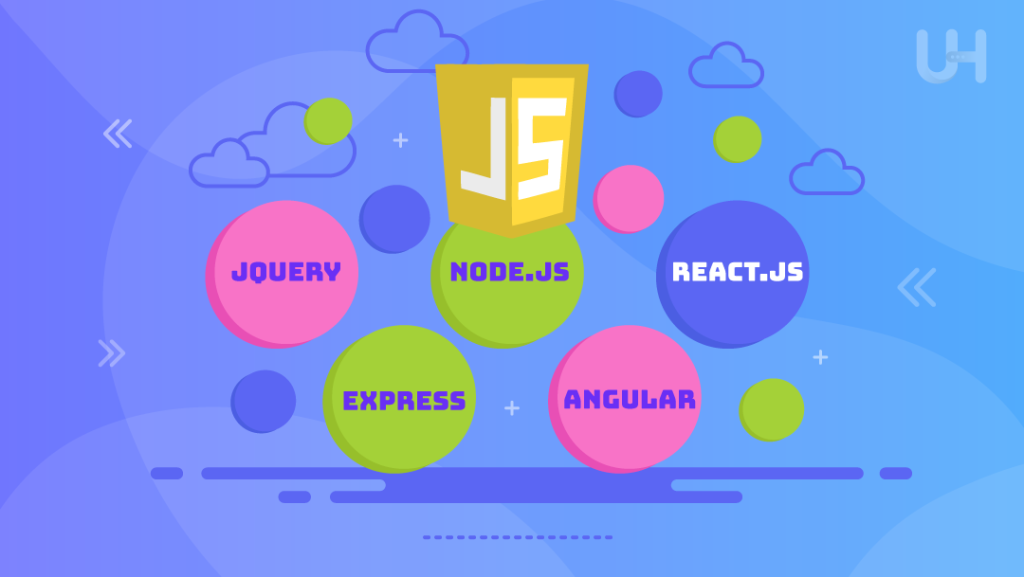
Kotlin is blessed with great tooling support, especially by JetBrains, in the form of IntelliJ IDEA, which is the very environment Kotlin was developed for. This supports IntelliJ-IDEA-based Android Studio, with cool features like auto-completion, refactoring, and debugging functions provided for developers working with Kotlin. This takes care of the development framework for developers who work in Kotlin smoothly and efficiently.
Java is an old language, and almost all of the main IDEs, like Eclipse, support it. IntelliJ IDEA incorporates very strong, wide-core libraries of plugins and frameworks for an efficient, productive, and versatile pattern of Java development in almost all environments.
Community Support and Ecosystem
Java has a large, well-established community that strongly supports the Java community in acquiring numerous resources for many functionalities, such as good documentation, tutorials, forums, and a vast number of libraries and frameworks. The mature ecosystem assists in finding solutions and collaborating with other developers.
Although Kotlin is also young and has its following, particularly after Google recommended it for Android development, the Kotlin ecosystem is developing fast with more resources and libraries. However, it is still small when comparing it to Java, and it may influence some specific tools or frameworks at one’s disposal.
Adoption and Popularity in the Industry
Java has been in the arena for a long time. It dominated the software world because of its wide diffusion in enterprises, web hosting solutions, and Android applications. Its historic background and reliability have made it a language of choice for many huge projects, thus marking its ever-growing popularity among developers and firms.
Kotlin has rapidly improved in its adoption—primarily within the Android development community through microblogging. Since Google supported it, the language has been gaining popularity fast, and many companies are migrating to or starting new projects in Kotlin. This hasn’t surpassed Java yet, but the growth trajectory does sink into the increasing pace of industry adaptation for mobile development in general.
Kotlin for Android Development
Since Google crowned Kotlin one of the official languages for the platform in 2017, it’s been the developer’s favorite language for Android development. Its syntax is concise and has features like null safety, making it very relevant for mobile development. Kotlin allows developers to build their Android applications with a bigger capacity and maintain them more easily.
Java was the first and foremost language for Android, so Android developers mostly use Java. However, with the gradual rise of Kotlin, it has gained popularity for its interoperability with Java and added advantages in terms of productivity. Because of this, Kotlin was able to take Java’s place, even for Android developers whose projects were essentially based on it, for many new projects.
Java’s Continued Relevance
Even with the ever-growing popularity of Kotlin, Java remains very relevant in today’s programming world. The fact that it has been in use for a very long time and is literally across many industries—from enterprise systems to Android development—ensures Java will always be there as a relevant language. Many apps and frameworks have their base in Java, offering performance, stability, and mature ecosystems that keep them credible choices for any developer.
Java’s continuous maintenance makes it a reliable option for maintaining and scaling older projects. Sure, Kotlin provides more modern improvements, but Java’s strength and the comprehensive support it receives mean that it will never be a legacy in software development anytime soon.
Conclusion
The debate between Kotlin or Java vastly depends on your project requirements and preferences. With modern features, concise syntax, and improved safety, Kotlin is the best option for any new Android development project. It is also interoperable with Java, hence allowing gradual adoption. Java remains one of the most reliable languages among Java vs Kotlin, particularly for large-scale enterprise applications.
For optimal performance and control in your Java or Kotlin projects, UltaHost’s robust dedicated servers provide unmatched power and security. Ensure your applications run smoothly and efficiently with our top-tier hosting solutions tailored for developers.
FAQ
What is the main distinction between Kotlin vs Java?
It is a modern language with concise syntax designed to improve Java’s weaknesses, such as null safety and expressive syntax. Java is more mature and has been around for an extended period, with a big history and ecosystem.
Is Kotlin faster than Java?
Since both Kotlin vs Java compile down to the same bytecode, they run at about the same runtime performance. However, you may notice this after a while due to additional features that Kotlin adds.
Can both Kotlin vs Java be used in the same project?
Kotlin is completely interoperable with Java, and a developer can work in Java and Kotlin in one project.
What’s the preferable language for Android development?
Kotlin has become a first-class language for Android development due to its modern features and official support by Google.
Can Kotlin replace Java?
No, Kotlin does not replace Java but is instead a modern alternative with improvements. Java is still applicable, particularly in the enterprise environment.
Is Kotlin daunting for Java developers?
No, learning Kotlin is easy for Java developers. This language is developed to be interoperable with Java, and many concepts and syntax elements coincide.
Which language has better community support?
The Java community is larger and mature, with an overabundance of resources that continues to grow even though the Kotlin community is growing fast.





